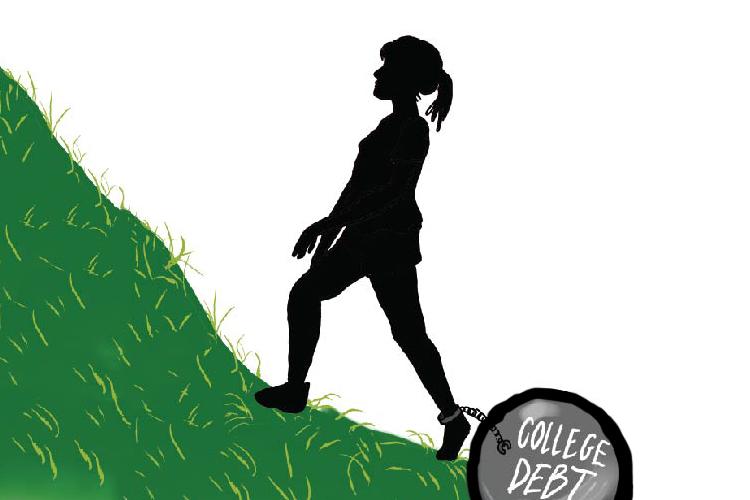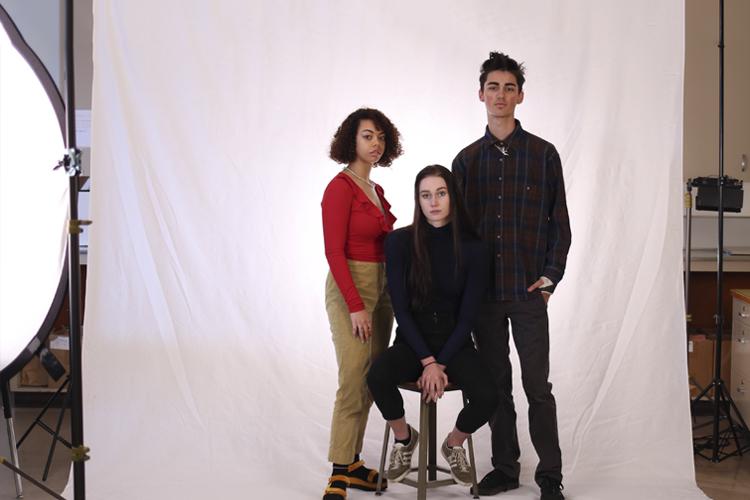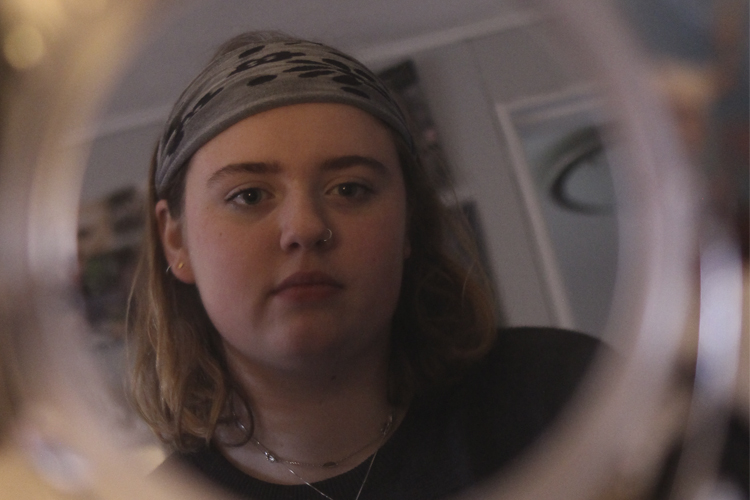
Maddie Hagan stands in front of the mirror, her eyes moving slowly up and down as she examines her reflection in the glass. She turns around and peers over her shoulder, looking at herself in a pair of jeans.
Checking herself in the mirror isn’t uncommon for Hagan, who fits it into her usual routine. This time, however, something is different. The jeans that Hagan wears when the weather is cold no longer fit. They are tighter, and don’t have the usual flow in the fabric.
Hagan’s breath speeds up, and her palms become moist with sweat. She quickly turns away from the mirror and retrieves her computer, searching the internet for potential causes of her body’s changes. The possibilities of different diseases and syndromes run through her mind and cause her heartbeat to increase significantly.
It would take a couple more days for Hagan to discover what was happening. Until then, her weight gain of nearly fifty pounds in sixth months would continue to escalate her anxiety.
In January of her junior year of high school, Hagan learned that she had Polycystic Ovary Syndrome (PCOS), a hormonal condition causing bodily changes like irregular menstruation and rapid weight gain. As a result of the condition, things that Hagan enjoyed — like Irish dancing and competitive running — were no longer possible. While she wanted to exercise to maintain a lower weight, a foot surgery made her unable to continue her previous passions.
Coupled with her years of social anxiety, Hagan’s weight gain and changed appearance significantly lowered her confidence. But after years of dealing with these self-confidence issues and struggling to accept her condition, Hagan has found a new meaning and purpose from her experience: to share with others a sense of body positivity.
Hagan’s parents, TJ and Meg Hagan, were expecting their daughter in June of 2000. But a month and a half earlier, on April 25 in Louisville, Ky., Hagan was born a premature baby.
After completing first grade in Louisville, Hagan and her family moved to Portland, Ore. for her father’s work, where she transferred to Laurelhurst K-8 School. At Laurelhurst, Hagan remembers being a shy child, making friends slowly and preferring to spend most of her time on her own. For Hagan, social life was often accompanied by a feeling of anxiety and stress. She remembers that in middle school, the majority of her Friday nights were spent alone in her room, avoiding social gatherings and meetups with her friends. “There was a ton of evidence that something was wrong,” Hagan says.
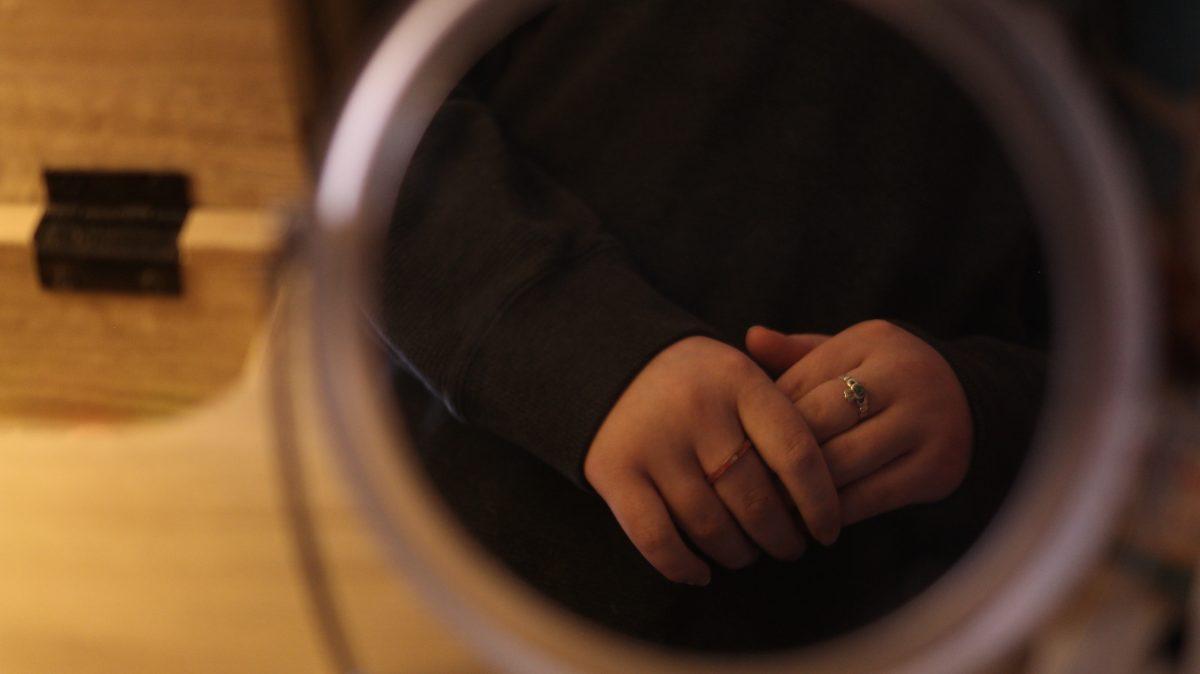
Hagan vividly remembers the evening of her eighth grade graduation at Laurelhurst. As usual, the commotion of such a large social event brought on a feeling of nervousness and anxiety. This time, however, there was an added sense of uneasiness: Hagan had a new dress. She was worried about the thought of the crowd looking at her body and staring at her clothes as she walked across the stage.
When the time came for Hagan to walk across the stage and receive her diploma, it was as if her legs were preventing her from moving. “I was so nervous to be around everybody and to be wearing that dress that it was a struggle to walk across the stage,” Hagan says.
During her freshman year, the transition into high school increased the anxiety that Hagan dealt with. Ruby Selis, one of Hagan’s few close friends, noticed a change in Hagan’s personality when they began classes at Grant High School. “When we went into high school you could tell that she was more nervous around people and in social situations,” says Selis.
For a year, Hagan struggled to interact with her classmates, and would notice different physical reactions to her stress and worrying. In classes, Hagan would constantly think that whispers and conversations were about her – people noticing the way that she dressed, or the way that she looked. “I would sweat non-stop throughout my freshman year,” Hagan says.
After struggling with these issues during her first year of high school, Hagan decided to seek medical help. When she talked with her doctor in the middle of her sophomore year, a formal diagnosis confirmed the obvious: Hagan had anxiety. In the winter of 2014, she was prescribed an anxiolytic medication called Zoloft to ameliorate the effects of her mental illness.
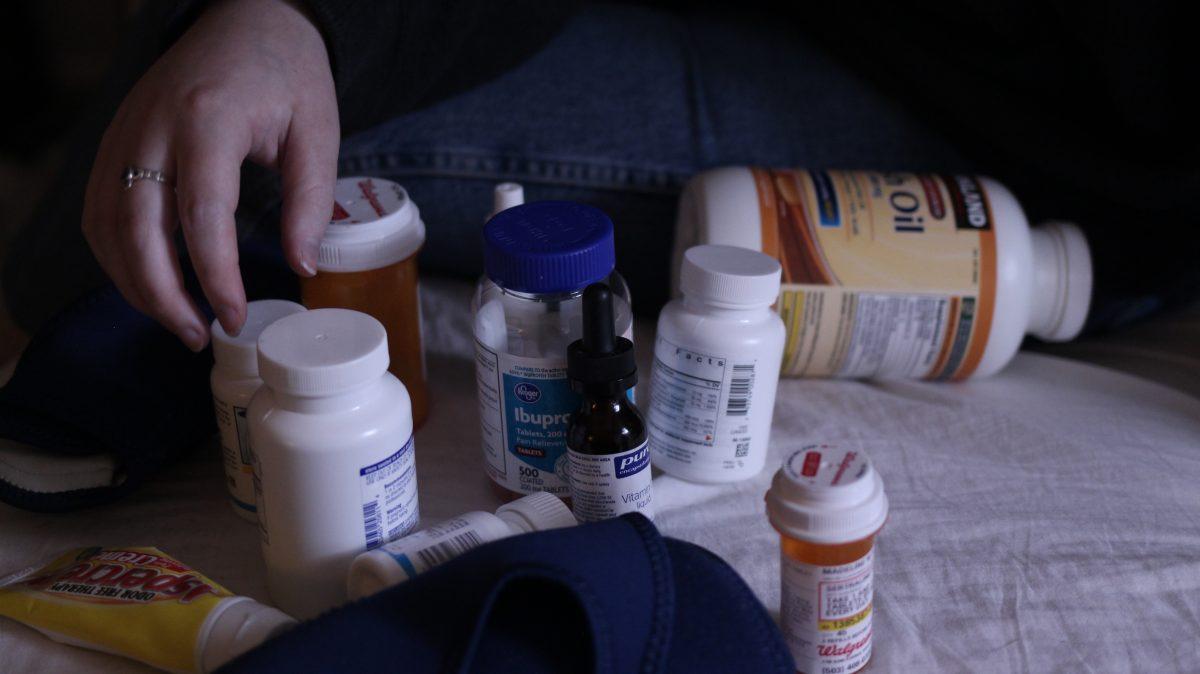
During junior year, however, new problems began to emerge. Hagan soon noticed that her menstruation had changed. “I didn’t get my period for eight months, which is a scary thing for girls. Your mind starts to wonder what could be causing the changes,” Hagan says. “I didn’t know why this was happening.”
Not long after her changes in menstruation, Hagan started to notice herself gaining weight. Even with frequent exercise from her time as a competitive runner on the Grant cross country team and Irish dancing, Hagan wasn’t able to reverse the changes.
After months of Hagan pondering the cause of these changes, her doctor told her that she had PCOS; Hagan learned that when she was born prematurely, she developed premature adrenarche, a disorder that causes early puberty and contributes to the development of PCOS. While the diagnosis wasn’t life-threatening, the symptoms were chronic and would now be part of her life.
With the new diagnosis, things began to spiral for Hagan, her anxiety causing her to worry about a future with PCOS. “I didn’t know if I would continue to gain weight or if other stuff would happen,” she says.
The anxiety also left her wondering what other people would think of her, or if she would be judged for her condition.
After her diagnosis, Hagan’s doctor informed her that while there wasn’t a way get rid of the PCOS, frequent exercise and a proper diet would help to limit the effects. But around the same time, Hagan was recovering from a recent surgery after experiencing foot pain from running.
This new inability to exercise due to the surgery contributed to her worries about her recent diagnosis. “The thing about PCOS is that you need to exercise a lot in order to control the weight gain,” Hagan says. “But after my surgery, I wasn’t able to run or do Irish dancing anymore, so my opportunities for exercise were limited.”
While her peers were mostly respectful of Hagan’s new changes, there was always the rare encounter with a critical classmate, friend or family member. Hagan remembers the time when a close relative of hers noticed her recent weight gain. “They saw me and said, ‘Oh, you must not be exercising as much,’” says Hagan. “It just solidified the thought that someone was thinking about (my PCOS). I was thinking, ‘If someone thinks I’m fat, maybe I am.’”
At school, Hagan’s anxiety made it hard for her to feel comfortable in her changing body, and she often worried that her classmates at Grant were aware of her condition and were judging her for it. “I always think that they must be judging me,” Hagan says. “They saw me then and they see me now, it’s almost as if it were a split second thing — I was 125 pounds a few months ago, and now I’m 175.”
With her recent weight gain, Hagan found it difficult to fit into her clothes. She loved fashion, and shopping for new styles and trends — but when she wore her favorite clothes, they were often too tight. For Hagan, this was a constant reminder that she didn’t look the same as she used to. Around school, she was hyperaware, wondering if the people around her, too, noticed that the way her shirts fit was different.
Slowly, however, Hagan’s mindset began to change. She soon realized that while her favorite clothes may not have fit the same way as they did prior to her PCOS symptoms, she could still find ways to wear them. “If I could wear something that I wore when I was lighter, and now I’m heavier, I can still wear it,” Hagan says. “It doesn’t matter. If someone who is skinner can wear a tank top, why can’t I?”
While in the summer before her senior year, Hagan was still unsure about her body and her condition of PCOS. But when she joined the Grant High School Constitution Team, Hagan realized that despite her ongoing medical conditions and struggles with her body image, she could still find things in her life to be passionate about. “Constitution Team has taken up so much of my thoughts, and I’ve put my soul into it,” says Hagan. “My life is what it is, and while I’ve struggled and will continue to run into more struggles, finding stuff that I love along the way shows me that I can still find worth and positivity.”

After joining the Constitution Team, Hagan’s confidence continued to elevate. She remembers the time that the girls from the team took a hiking trip up Black Butte over the summer; when everyone began to take off their shirts to cool off from the heat, Hagan was hesitant at first to join in.
But when she finally chose to follow the crowd, she began to realize that she did not have to hide who she was or the changes that she had gone through. “Everyone was taking pictures of each other and the experience, and I was okay with that,” Hagan says.
Much of Hagan’s new acceptance came from her realization that she wasn’t going to be able to change her condition, and that, even with PCOS, her body was her own. “It’s weird to not be comfortable with the body you walk around in,” Hagan says. “But I realized that since I couldn’t control what was happening to my body, there was no shame in how I looked.”
In October of 2017, Hagan decided to cut her hair. For her, changing her hairstyle was a way of accepting her changed image and her new body.
Now a senior, Hagan says that despite her struggles with PCOS and social anxiety, she is more confident in herself and her body than before her diagnosis. “Going through this experience where everything was out of my control — not being able to control my weight gain or all of the changes with my body — I am able to think about who I am now, not when I was 50 pounds lighter,” she says. “I don’t spend my time wishing I was the same weight as I was before, because I’m happy with who I am now.”
Recently, the effects of the PCOS have caused Hagan to develop a facial disease called eosinophilic fasciitis and carpal tunnel syndrome, conditions that have continued to inhibit Hagan’s mobility. But despite these new challenges, she remains happy with her body. Hagan has found that through her experience with chronic illness and changing appearance, she doesn’t worry as much about what other people might think. “Being 175 pounds has negative connotations. But it’s about learning to accept the fact that some people won’t accept this,” Hagan says. “And for the ones who do … those are the people I should surround myself with.”
But after years of dealing with the effects of PCOS and struggling with her own body image, Hagan has found new meaning from her experience.
When she notices that one of her peers is struggling with their own self-confidence, Hagan knows that she has her story to comfort them. “I use my body issues as an inspirational message,” she says. “Sharing about my chronic illness gives the perspective to people that … everyone’s body is different, but that it doesn’t have to mean a negative change in someone’s personality.”
To Hagan, this focus on body positivity is an issue that is especially important at Grant High School. She believes that at Grant, students are too quick to jump behind the movement, often before considering what body positivity means to them. “A lot of times, people get behind movements that they haven’t thought much about. Would you be okay with gaining weight if you were still healthy?’ Most people’s unconscious response would be negative, so what does that show about their views of body positivity?”
Hagan thinks that in order for the culture of body positivity at Grant to change, students need to be active in their participation in the movement, and be willing to talk about the issues — like PCOS — that are often seen as taboo, or awkward.
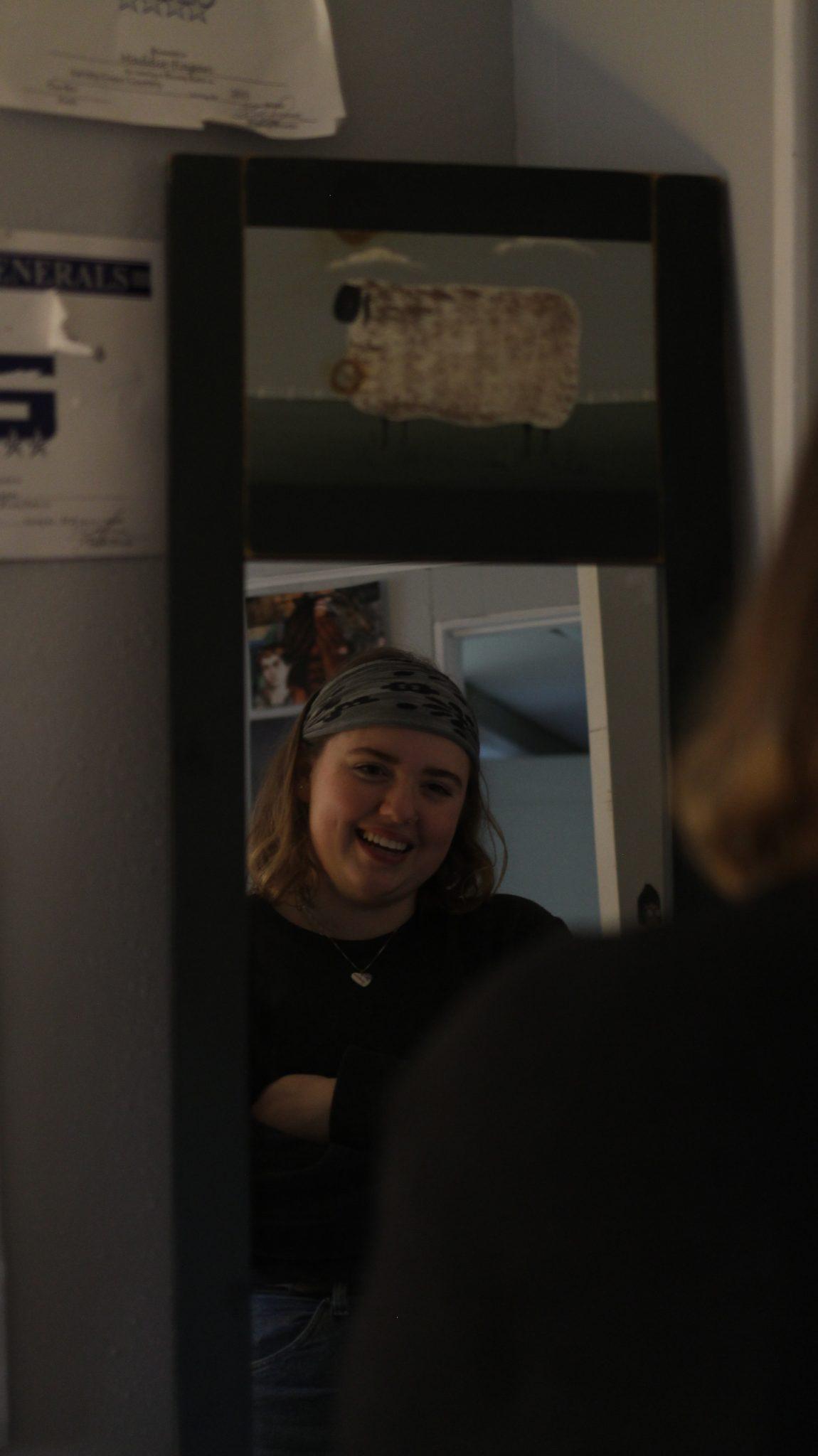
On a recent morning before school, Hagan holds a soft dress in her hands. It is one that she has had for a while, but when she puts it on, the fit is tighter than it used to be. She smooths the edges down, and looks at herself in the mirror. In her head, she knows that walking to school with the outfit on will be a struggle — would it draw attention to herself, or accentuate her changes?
Despite being hesitant to wear the outfit, Hagan forces herself to ignore her concerns. As she walks into the school building with the ends of the dress flowing behind her, she knows that by pushing herself, she’s growing. “You have moments where you don’t feel good about yourself, but you have to try it,” Hagan says. “You have to try out your comfort levels to teach yourself to love how you look and how your body is.”
While Hagan expects to continue to deal with PCOS and anxiety, she is determined to keep a positive outlook on her situation. “PCOS and all of my bodily changes have been the negative things in my life. But if in addition to these outside issues I continued my negative mindset as well, I would be in such a terrible place,” Hagan says. “I want to feel good about myself, and I want to love myself … because that’s how people get the most out of life.”





























